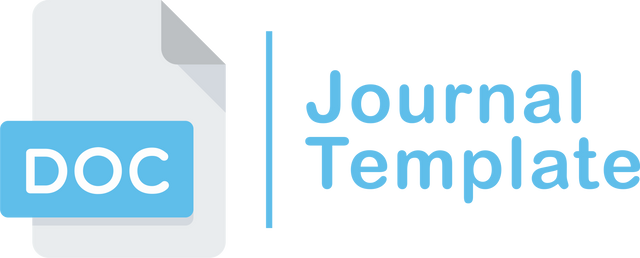PPG Students’ Perception of PPG Program in Developing Their Teaching Ability
DOI:
https://doi.org/10.61667/9y6ksm24Keywords:
Professional Development, Teaching Program , Pendidikan Profesi Guru (PPG), Students’ PerceptionAbstract
Teaching ability is one of the components needed in achieving students’ competency targets. In this case, PPG program students need to master an effective teaching skill. In this study, the researchers aimed to examine the impact and experience of the Pres-service PPG program in developing teacher professionalism. The researchers provided three participants of the 2022/2023 Pre-service PPG program. This study used qualitative descriptive design and the interview technique was implemented to obtain the data. The results of this study indicate that the participants gave a positive response to the pre-service PPG program. This is shown from the results of the interviews that the program was very useful in improving teaching skills an the students also got several benefits during the period of PPG program.
References
Apriliyanti, D. L. (2020). Enhancing Teachers’ Competencies through Professional Development Program: Challenges and Benefactions. Acuity: Journal of English Language Pedagogy, Literature and Culture, 5(1), 28–38. https://doi.org/10.35974/acuity.v5i1.2042
Arianti, A. (2019). Peranan Guru Dalam Meningkatkan Motivasi Belajar Siswa. DIDAKTIKA : Jurnal Kependidikan, 12(2), 117–134. https://doi.org/10.30863/didaktika.v12i2.181
Bergmark, U. (2023). Teachers’ professional learning when building a research-based education: context-specific, collaborative and teacher-driven professional development. Professional Development in Education, 49(2), 210–224. https://doi.org/10.1080/19415257.2020.1827011
Cevikbas, M., König, J., & Rothland, M. (2023). Empirical research on teacher competence in mathematics lesson planning: recent developments. ZDM - Mathematics Education, 0123456789. https://doi.org/10.1007/s11858-023-01487-2
Creswell, J. (2003). Research design: Qualitative, quantitative and mixed methods approaches (2nd ed.). SAGE Publication.
DeLuca, C., Valiquette, A., Coombs, A., LaPointe-McEwan, D., & Luhanga, U. (2018). Teachers’ approaches to classroom assessment: a large-scale survey. Assessment in Education: Principles, Policy and Practice, 25(4), 355–375. https://doi.org/10.1080/0969594X.2016.1244514
Gimbert, B. G., Miller, D., Herman, E., Breedlove, M., & Molina, C. E. (2023). Social Emotional Learning in Schools: The Importance of Educator Competence. In Journal of Research on Leadership Education (Vol. 18, Issue 1). https://doi.org/10.1177/19427751211014920
Ilham, S., Vázquez-cano, E., & Novita, L. (2022). Use of Canva Application as a Learning Media. Al-Hijr: Journal of Adulearn World, 1(1), 9–15.
Inganah, S., Darmayanti, R., & Rizki, N. (2023). Problems, Solutions, and Expectations: 6C Integration of 21 st Century Education into Learning Mathematics. JEMS (Journal of Mathematics and Science Education), 11(1), 220–238.
Jamali, A. R., Bhutto, A., Khaskhely, M., & Sethar, W. (2022). Impact of leadership styles on faculty performance: Moderating role of organizational culture in higher education. Management Science Letters, 12(1), 1–20. https://doi.org/10.5267/j.msl.2021.8.005
Leedy, P. & Ormrod, J. (2001). Practical research: Planning and design (7th ed.). SAGE Publications, Inc.
Linda, L. (2017). Analisis penguasaan kompetensi pedagogik dan profesional mahasiswa calon guru matematika dalam mata kuliah micro-teaching. PYTHAGORAS: Jurnal Pendidikan Matematika, 12(1), 65. https://doi.org/10.21831/pg.v12i1.14053
Miles, M. B., & Huberman, A. M. (1994). Qualitative data analysis: An expanded sourcebook. SAGE Publications, Inc.
Puspitarini, Y. D., & Hanif, M. (2019). Using Learning Media to Increase Learning Motivation in Elementary School. Anatolian Journal of Education, 4(2), 53–60. https://doi.org/10.29333/aje.2019.426a
Rajagopalan, I. (2019). The Concept of Teaching. Journal of Philosophy of Education, 7(2), 5–8. https://doi.org/https://doi.org/10.34293/ education.v7i2.329
Raspopovic, M., Cvetanovic, S., Medan, I., & Ljubojevic, D. (2017). The effects of integrating social learning environment with online learning. International Review of Research in Open and Distance Learning, 18(1), 141–160. https://doi.org/10.19173/irrodl.v18i1.2645
Sahari, S. (2018). Pengaruh Pendidikan, Pelatihan, dan Pengalaman Mengajar terhadap Profesionalisme Guru di SMAN I Likupang. Jurnal Ilmiah Iqra’, 9(1), 62–86. https://doi.org/10.30984/jii.v9i1.599
Setiyadi, D., Munjaji, I., & Naimah, N. (2022). Pengembangan Bahan Ajar Bernuansa Etnomatematika Pada Tingkat Sekolah Dasar Dengan Satuan Hitung Tidak Baku Khas Banyumas. Jurnal Eduscience, 9(1), 227–234. https://doi.org/10.36987/jes.v9i1.2571
Sutrisno, D. (2022b). Fostering student’s critical reading through technology integrated instruction. Teaching English as a Foreign Language Journal, 1(2), 125–134.
Soffer, T., & Cohen, A. (2019). Students’ engagement characteristics predict success and completion of online courses. Journal of Computer Assisted Learning, 35(3), 378–389. https://doi.org/10.1111/jcal.12340
Triwinarni, E. (2017). Evaluasi program Pendidikan Profesi Guru (PPG) Pendidikan Agama Islam di UIN Sunan Kalijaga Yogyakarta. Prosiding Interdisciplinary Postgraduate Student Conference, 219–223. http://repository.umy.ac.id/handle/123456789/8545
Tsung-Jui, T., & Ya-Chun, S. (2015). Teacher professional development: Remote podcasting and metacognitive strategies. Professional Development and Workplace Learning: Concepts, Methodologies, Tools, and Applications, 2045–2074. https://doi.org/10.4018/978-1-4666-8632-8.ch112
Wulandari, A. P., Salsabila, A. A., Cahyani, K., Nurazizah, T. S., & Ulfiah, Z. (2023). Pentingnya Media Pembelajaran dalam Proses Belajar Mengajar. Journal on Education, 5(2), 3928–3936. https://doi.org/10.31004/joe.v5i2.1074
Zega, Y. X. G. H., & Kurniawati, G. E. (2022). Pentingnya Manajemen Waktu Bagi Mahasiswa Dalam Meningkatkan Prestasi Belajar Di Sekolah Tinggi Teologi Duta Panisal Jember. Metanoia, 4(1), 58–70.
Downloads
Published
Issue
Section
License
Copyright (c) 2024 Global Synthesis in Education Journal

This work is licensed under a Creative Commons Attribution-NonCommercial-ShareAlike 4.0 International License.

















